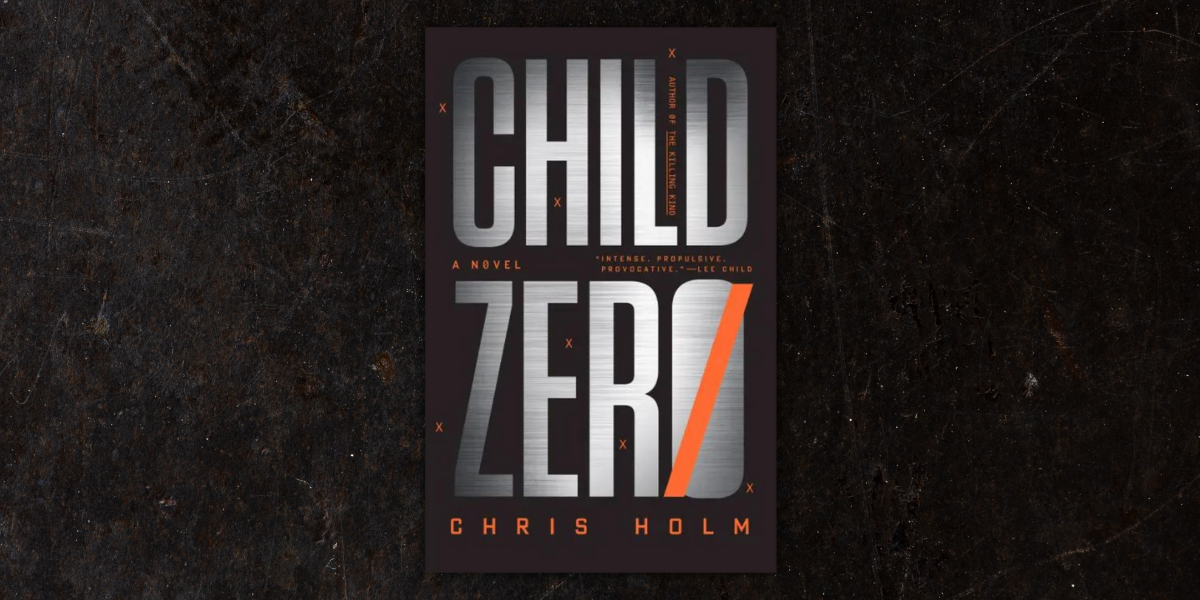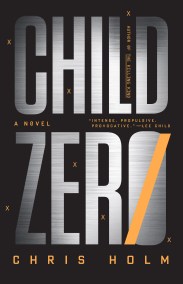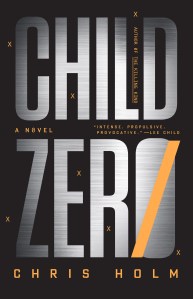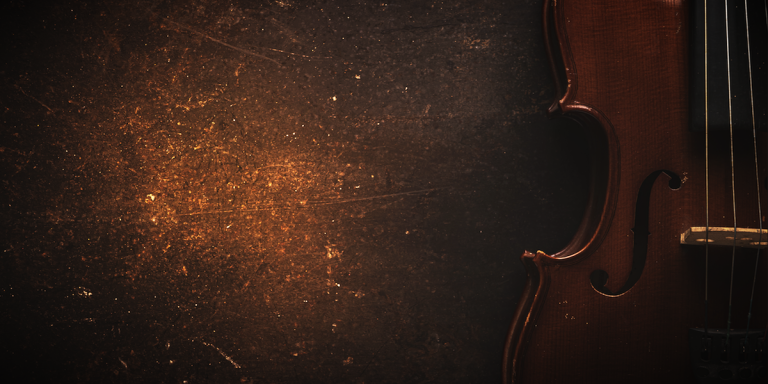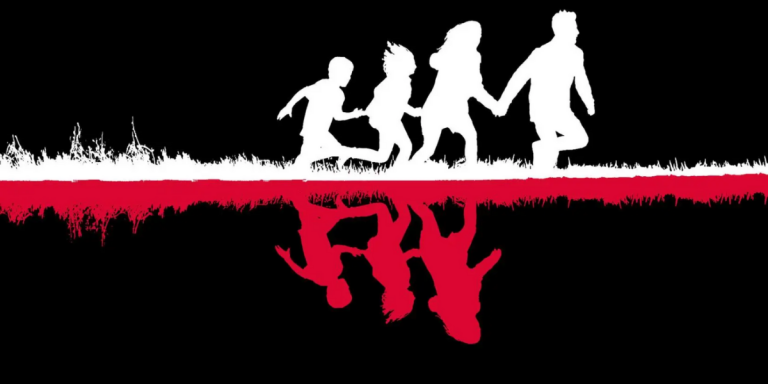Read the Excerpt: Child Zero by Chris Holm
5.
When the uniformed officer rapped against the passenger-side window of the unmarked Ford Interceptor, Jake jolted upright in his seat. Until that moment, he hadn’t realized he’d dozed off. Worried as he was about Zoe, he was amazed that he’d been able to. Then again, he knew she couldn’t be in better hands.
The last thing he remembered was resting his head against the warm glass and listening to the tires’ rhythmic clatter against the Queensboro Bridge, sunrise blazing orange in the side-view mirror. His thoughts had wandered as the car weaved autonomously westward through the early morning traffic—its steering wheel adjusting of its own accord to Jake’s left, its electric motor nearly silent—until exhaustion overtook him.
Police barricades blocked off Central Park West north of 63rd Street. The Interceptor idled just south of them. An Art Deco apartment building dominated the view out the driver’s-side window. Jake’s window faced the park. Its thick canopy of leaves blanketed the avenue in undulating shadows, as if the trees were trying to prevent the slanting light from breaking through.
Jake gave the officer outside his window a look that straddled the line between sheepish and annoyed, then fished his gold detective’s shield out of his sport coat and held it up for him to see. The cop nodded to a buddy, who slid one of the barricades aside, and waved Jake through. Jake tapped the touchscreen on the dash and the car rolled forward once more.
North of the barricades, Central Park West was eerily empty, although the unmarked remained dutifully in its lane. The sky above was tinted gray by smoke. A police drone zipped by overhead, its tiny rotors whirring as it snapped pictures of the gawkers who had gathered at the barricades. Amy’s doing, Jake suspected. It was a good idea, if something of a long shot. While the old saw about criminals returning to the scene of the crime was often true, most of the crowd wore protective masks, which limited the efficacy of facial recognition software—and, despite alarmist social media posts to the contrary, the drone’s microphone was all but useless for mass surveillance. Aloft, the mic was overwhelmed by the sound of the propellers; at rest, noise pollution made isolating intelligible audio from a crowd next to impossible.
Crime scene technicians congregated around Park City’s southwest gate, taking photographs and dusting for prints. Jake figured this must be where the perpetrators gained entry to the camp. The Interceptor rolled by without slowing, so he was forced to crane his neck to take in the scene.
The gate was one of several secondary entrances intended to provide speedy access to first responders in the event of an emergency. As such, it was supposed to be staffed at all times. Yellow evidence markers dotted the pavement just outside—indicating tire tracks, most likely—but Jake saw nothing to suggest they’d found a body. He supposed the guard booth could be hiding one from view, but if not, he was curious to speak with whoever’d been on duty last night. The encampment’s main entrance was opposite West 67th. A clot of vehicles sat just outside: ambulances, police cruisers, fire-and-rescue. The cruisers were empty. The fire-and-rescue vehicles, too, compartments flung open to access their supplies. The ambulances faced away from the gate, engines idling, for easy loading and rapid egress—but the drivers inside looked bored and edgy. Whatever had happened, there didn’t seem to be a lot of injured people in need of transport.
Jake’s unmarked pulled in beside the vehicles and chimed to indicate they’d reached their destination. Once he climbed out, it drove away, automatically recalled to God knows where.
Jake headed toward the open gate, eyes burning from the acrid smoke, thick enough here to render the world in jaundiced tones. The concrete barriers that lined the fence on either side of the main entrance were tattooed with layer upon layer of graffiti, some hasty scribbles, others improbably elaborate. The most famous, and most photographed, was a large rectangular piece in the style of an old postcard. Greetings from PARK CITY, it read, the all-caps letters oversized and filled with apocalyptic images of Manhattan in ruins.
Park City was created in the aftermath of the 8/17 attack, by necessity and with the noblest of intentions. The encampment’s proper name was the Sheep Meadow Emergency Refugee Center, but no one ever used it anymore. It had outlived its formal designation just as surely as it had exceeded its mandate.
Three years ago, on the morning of August 17, a twenty-six-year-old Canadian national by the name of Spencer Brutsch left his third-floor walkup in Washington Heights and boarded a southbound 1 train at the 168th Street station. An hour later, surveillance cameras placed him at a breakfast joint on Lexington Avenue between 39th and 40th. He ordered waffles and appeared to be in good spirits. Credit card records indicated that he overtipped.
Between home and breakfast, Brutsch committed the most heinous act of terror the world had ever seen.
Brutsch was a doctoral candidate at Columbia University’s Department of Microbiology and Immunology. Unbeknownst to his advisor and his fellow grad students, he was also an active member of ShadowVox’s controversial/endtimes forum. Authorities believe that’s where he was radicalized. The site’s fanatical devotion to anonymity made it a breeding ground for extremism of all kinds.
Brutsch, working in secret, used university resources to culture a multidrug-resistant strain of Yersinia pestis, the bacterium responsible for bubonic, septicemic, and pneumonic plague. Bubonic and septicemic plague—which take root in the lymph nodes and the blood, respectively—require an animal vector for transmission, but pneumonic plague—which attacks the lungs—spreads from person to person through the air. One to three days after infection, you develop a fever, headache, and weakness. Then pneumonia sets in and breathing becomes a chore. Your lungs try in vain to clear themselves, spreading pestilence to those around you with every painful, racking cough. By the time shock sets in, it’s almost a relief. Many patients die within thirty-six hours. Without timely access to effective antibiotics, no one with pneumonic plague survives a week.
The route Brutsch took on August 17 passed through the two busiest subway stations in Manhattan, Times Square–42nd Street and Grand Central–42nd Street, at the height of the morning rush. As usual, several trains were running late that day, so the stations were shoulder-to-shoulder with commuters.
In each station, Brutsch left a rudimentary aerosol device of his own design. He was a better microbiologist than an engineer; the nozzle of the Times Square device clogged within moments of activation. His Grand Central device, however, worked precisely as intended—dispersing a fine mist of aerosolized plague throughout the crowded platform.
That was Thursday.
By Friday morning, the first patients had developed symptoms.
Come Friday afternoon, there were more than seven hundred confirmed cases of pneumonic plague in the greater metropolitan area, and dozens of patients were in critical condition. The mayor declared a state of emergency and suspended all mass transit. Bridges and tunnels were closed.
Manhattan was locked down.
Inside the cordon, panic spread as quickly as the disease. Grocery stores and pharmacies were looted for supplies. Barricades were overrun. Friday night, the president deployed the National Guard, who patrolled the streets in hazmat suits and shot rioters on sight.
By Saturday, the infected began dying. Brutsch was almost certainly one of the first to go, having inhaled enough plague to kill a hundred men while activating his devices. When the FBI kicked down his door, they found his bloated corpse reclining on the couch, his laptop still logged in to ShadowVox—a VPN hiding his IP address and spoofing his location.
He’d died bragging via private chat about the mayhem that he’d wrought.
As the death toll rose, New Yorkers were instructed to shelter in place. Many in the outer boroughs ignored the edict and gridlocked the streets in their attempts to flee. Manhattan hotels refused to rent rooms to those stranded by the quarantine, so temporary shelters were set up in Central Park’s Sheep Meadow to accommodate them. FEMA provided supplies enough to house three thousand. The encampment quickly swelled to four times that, forcing the authorities to expand its borders.
The outbreak raged for weeks before martial law and public education finally brought it under control. By then, nearly one hundred thousand people were dead—Jake’s wife, Olivia, among them. Another million left the city as soon as they were allowed. Wealthy New Yorkers turned their buildings into hermetically sealed citadels and hired private armies to protect them. The poor, for want of options, soldiered on as they always had.
Once the city settled into a new normal, the encampment became a liability. After a month of overcrowding and poor sanitation, its conditions were abhorrent—a tiny Third World nation in the heart of Manhattan. Everything from shigellosis to typhoid fever ran rampant, and cases of bubonic plague were not uncommon. In addition to its human victims, Brutsch’s attack had infected countless rats, creating a simmering reservoir of plague beneath the city, which was transmissible to humans via fleas. Outside the camp, exposure was unlikely; inside, it was unavoidable.
Panicked lawmakers, backed by a terrified public, ensured that no one was allowed to leave the camp unless they’d been demonstrably healthy for forty days—a near impossibility under the circumstances. Then one detainee who cleared that hurdle turned out to be an asymptomatic typhoid carrier. He sparked an outbreak that left three dead, after which the screening program was suspended. The remaining inhabitants of the camp—4,721, by last count—have been in limbo ever since.
Jake suspected that number was a little lower today.
The camp’s administrative offices were located just inside the main gate, in the building formerly occupied by Tavern on the Green. Brutsch’s attack had proved devastating to the city’s tourist trade, and locals were uninterested in eating overpriced American cuisine while looking out upon a shantytown, so the iconic restaurant went under years ago, and was subsumed by the encampment not long after. Now the structure’s faded opulence seemed at odds with its function.
A second fence separated the administrative offices from the interior of the encampment. The parking lot between the fences teemed with police, firefighters, and EMTs. Some wore uniforms. Others wore Tyvek coveralls of white or powder blue. Still others wore shock-yellow hazmat suits. Between the fences, the protective gear was unsullied, because it was all single-use, and reentry from the encampment was tightly regulated. A decontamination tent had been set up on the other side of the inner fence for those returning from the crime scene. Jake watched a group of firefighters enter at its far end, their hazmat suits stained brownish-gray like the sky. Another exited its near end in their station uniforms, having removed their hazmat gear inside.
Jake spotted his partner, Amy, among the crowd and headed toward her. She glared at him as he approached.
“Where have you been?” She spoke at an angry whisper to avoid being overheard. “I called you more than two hours ago.”
Amira Hassan was a fresh-faced, dark-skinned twenty-seven, with bright eyes and an easy smile, the latter of which was nowhere to be seen today. She barely came up to Jake’s chin but still somehow managed to look imposing in her tailored gray pantsuit and black hijab. Her detective’s shield was affixed to her lapel. Her jacket was cut loosely to leave room for the gun on her right hip.
“I know,” Jake said. “I’m sorry.”
“Oh, good. You’re sorry. That makes me feel so much better about putting my career on the line by lying to the captain when he asked where you were.”
“You didn’t have to do that.”
“You’re right. I didn’t. You’ve seen firsthand what I go through on the daily. Half the force is chomping at the bit to see me fail. So hows- about you return the favor by telling me what’s going on?”
Jake glanced warily around. “I can’t. Not here. But I promise that I’ll fill you in as soon as I’m able.”
Something in his tone caused Amy’s expression to soften. “Okay,” she said, “but I plan to hold you to that.”
“I’d expect no less.”
“Do me a favor, though, would you?”
“Name it.”
“Next time you leave me hanging, take an extra ten minutes to shower and shave. You look like hot wet garbage.”
Jake smiled despite himself. She wasn’t wrong. His shirt was rumpled, his hair a mess. His jaw was dusted with stubble. The canvas sport coat he’d grabbed on his way out the door to hide his shoulder holster was creased at the elbows, and the tie he’d found stuffed into its right front pocket was unwearable thanks to a blotchy stain down the front—mustard, by the look of it.
“So,” he said, “you wanna tell me what we’re doing here?”
A haunted expression flitted across her face. “It’d be easier to just show you,” she replied. “But we’ll have to suit up first.”
She led him to a canopy tent, open at the sides. At one end was a folding table piled high with disposable protective gear. Safety goggles. Nitrile gloves. Respirator masks. Tyvek coveralls with matching booties. The goggles and masks were purportedly one-size-fits-all. Everything else was arranged from extra small to extra large.
Amy went down the line grabbing stuff. Then she shrugged out of her coat and began to put the gear on over her clothes. Jake did the same. The humidity made wriggling into the coveralls a pain, and the coated fabric didn’t breathe, so he wound up pouring sweat. He had no idea how Amy made it look so easy. She geared up in seconds flat and then watched with an eyebrow cocked until he finished.
They cleared the checkpoint at the second fence, manned today by New York’s finest rather than employees of the private security firm that managed the camp, and climbed into one of several four-wheel-drive utility vehicles that were lined up on the other side. Amy got behind the wheel. Jake rode shotgun. The thing looked like a glorified golf cart, but it had a surprising amount of pickup. Jake was pinned to his seat as they lurched forward and quickly left the pavement behind.
At its height, Park City was an unbroken sprawl of solar-powered FEMA shelters and military surplus tents. Over time, as the population dwindled and the original structures began to fail, it evolved into several clusters of patchwork tents and shanties—villages, in the parlance of their inhabitants—connected to one another by well-worn paths of dirt. Jake and Amy’s vehicle now jounced along one of them, headed northeast across Sheep Meadow.
These days, the fifteen-acre field was largely abandoned, its flat expanse a wasteland of collapsed shelters, dead campfires, and piles of trash. Anything worth scavenging had been taken by the villagers long ago. The rest had been left to rot.
Here and there amid the rubble, a handful of ersatz domiciles still stood, their inhabitants too paranoid or misanthropic to live alongside their fellow detainees. Dirty faces peered at Jake and Amy around flimsy doors and dangling tent flaps as they passed. Some looked stricken. Others, suspicious. One woman appeared to Jake as if she were wearing war paint until he realized the lines of white from cheek to jaw were made by falling tears.
At the northeastern edge of Sheep Meadow, the footpath cut through a line of trees. This close to the source of the smoke, the air was foul, and visibility was poor. An old snack shack briefly emerged from the haze as they rolled by, its facade smashed all to hell, and just as quickly vanished from sight.
The trees gave way to a small clearing. Amy braked to a halt at its edge between a pair of fire trucks and killed the engine. Gray water dripped from the branches overhead, beading up on Jake’s safety glasses and dyeing his coveralls an ugly shade. When he climbed out of the vehicle, his feet sunk into an inch of dark mud.
Before him was the ruins of a village. Every tent was torn to pieces.
Every shanty was destroyed. Slashed bedding and emptied footlockers littered the grass, their scattered contents soaking wet and streaked with ash. The wooden shelter that housed the village’s showers had been knocked down. The chemical toilets beside it lay on their sides, doors flopped open, seams leaking pungent blue. Even the communal garden had been uprooted, its vegetables trampled.
Whoever’d done this had been looking for something, Jake thought—but what? And why aren’t there any bodies? Where the hell had all the residents gone?
Jake wandered through the wreckage, Amy trailing close behind. The village was arranged around an ad hoc town square, which, at present, housed the remains of an enormous bonfire—extinguished but still smoldering, ghostly tendrils coiling toward the sky. It was clear from the scorch marks on the nearby tents that it had burned for quite some time, but even still, the pile of charred wood left behind was ten feet high. A swarm of hazmat suits surrounded it, shiny yellow streaked with black, the suits’ occupants rendered faceless and inhuman by their masks.
Jake watched them dismantle the pyre log by log, Amy eyeing him significantly all the while. At first, he didn’t understand what it was she wanted him to see. Then, at once, he did.
They were loading the spent logs into body bags, because they weren’t logs at all. They were corpses. Shriveled. Blackened. Limbs burned down to stumps.
Jake no longer wondered where all the residents had gone.
Order the Book
It began four years ago with a worldwide uptick of bacterial infections: meningitis in Frankfurt, cholera in Johannesburg, tuberculosis in New Delhi. Although the outbreaks spread aggressively and proved impervious to our drugs of last resort, public health officials initially dismissed them as unrelated.
They were wrong. Antibiotic resistance soon roiled across the globe. Diseases long thought beaten came surging back. The death toll skyrocketed. Then New York City was ravaged by the most heinous act of bioterror the world had ever seen, perpetrated by a new brand of extremist bent on pushing humanity to extinction.
Detective Jacob Gibson, who lost his wife in the 8/17 attack, is home caring for his sick daughter when his partner summons him to a sprawling shantytown in Central Park, the apparent site of a mass murder. Jake is startled to discover that, despite a life of abject squalor, the victims died in perfect health—and his only hope of finding answers is a twelve-year-old boy on the run from some very dangerous men.
By clicking 'Sign Up,' I acknowledge that I have read and agree to Hachette Book Group’s Privacy Policy and Terms of Use
